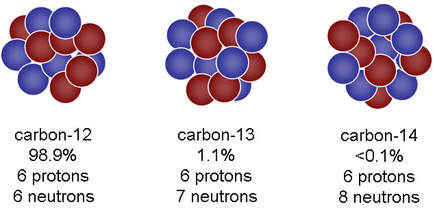|
When I was a brand new professor... Before an exam. Students: Can you tell us what to study? Me: Everything from Chapter 1 to 6. Plus all the stuff covered in the last 5 weeks. Plus all the wisdom coming out of my mouth. Anyway you should figure it out on your own. After the exam. Me: Grrrrrrrrrr. I can't believe everyone bombed the problem on the exponential decay of Carbon-14! A colleague: Did you tell them it's important? Me: Well, they should have known!!! It's in Chapter 6 and we covered all of Chapter 6. Colleague: No you didn't. I visited Nicole Watson's Human Biology class before fall semester ended. It was a fantastic class! Nicole is such an effective communicator, and it has a lot to do with her many verbal cues: - This is very important... - That is a tricky question... - You should know that... - etc. By constantly communicating goals and expectations, Nicole does more than presenting information: she guides students and actively engages them. As a result, the class is focused, productive and clearly enjoying the experience. Not all teachers make efforts in telling students about goals and expectations, or about what is important and what to study. (Putting them in a 25-page syllabus and never emphasizing them in class is hardly an effort.) But why not? Some instructors think that if we tell the students what topics to study, they will only study those topics and ignore the rest. (Wouldn't it be great if students would actually study exactly what we ask of them?) If the students are so good at taking such directions, it makes even more sense that we give them a great deal of specific directions, instead of vague ones like studying all of Chapter 9. Some instructors believe that learning how to learn is part of the learning process. (Sorry for the tongue twister.) In that case, let's guide the students through this learning process. Don't just hope that they would figure it out on their own before failing a few classes along the way. For example, a 5-minute class discussion on what was important from last week, Family Feud style, might serve the purpose. In the end, students need to know about the goals and expectations. They need to know what to study. Not all of our students have the best preparation for college. They might have weaker academic background or studying skills, and they also take on responsibilities with jobs and family. However they try hard and study as much as they can. They would have a good chance to succeed, as long as we articulate the goals, specify what they should work on and help them work on those things. Back to my first-year teaching experience. If I could do it all over again, would I tell the students that the Carbon-14 problem would be on the test? If that makes them study and figure out the problem, then absolutely yes!
0 Comments
Leave a Reply. |
AuthorDr. Ben Weng Archives
September 2021
Categories
All
|

 RSS Feed
RSS Feed